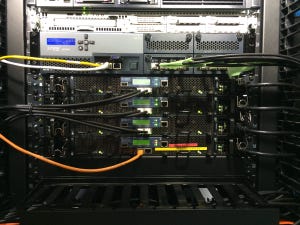Automation
Data center observability challenges illustration
Data Observability
The Hidden Hurdles of Data Center Observability and How to Overcome ThemThe Hidden Hurdles of Data Center Observability and How to Overcome Them
Data center observability presents unique challenges compared to other environments. Learn how to navigate these hurdles and enhance your operations.
Subscribe to the Data Center Knowledge Newsletter
Get analysis and expert insight on the latest in data center business and technology delivered to your inbox daily.





































.jpg?width=700&auto=webp&quality=80&disable=upscale)



